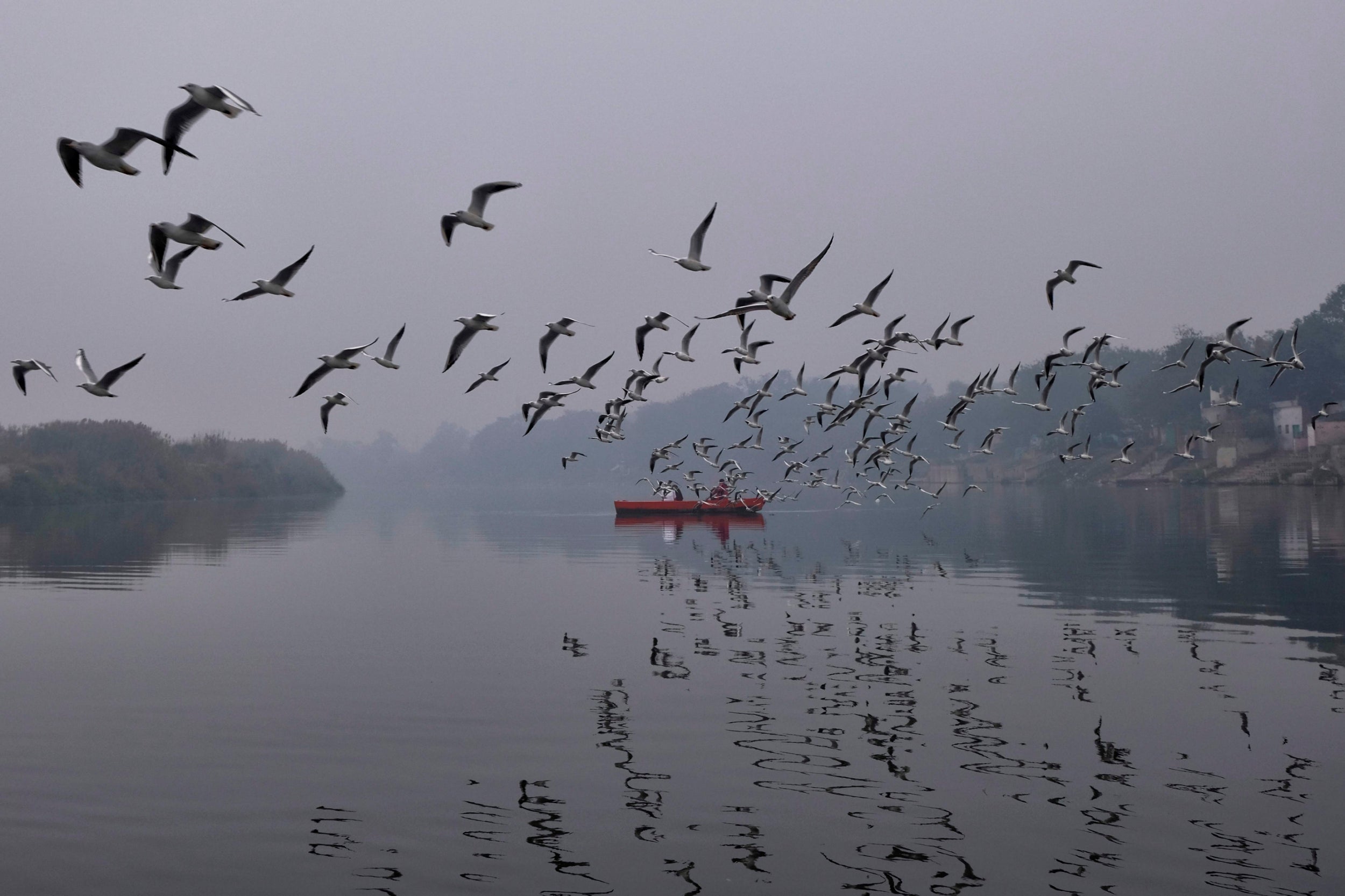Trump's industry-friendly rollback could kill billions of birds, warns ex-wildlife chief
The Trump administration is pushing ahead with rollbacks on dozens of environmental protections ahead of the November election

Your support helps us to tell the story
From reproductive rights to climate change to Big Tech, The Independent is on the ground when the story is developing. Whether it's investigating the financials of Elon Musk's pro-Trump PAC or producing our latest documentary, 'The A Word', which shines a light on the American women fighting for reproductive rights, we know how important it is to parse out the facts from the messaging.
At such a critical moment in US history, we need reporters on the ground. Your donation allows us to keep sending journalists to speak to both sides of the story.
The Independent is trusted by Americans across the entire political spectrum. And unlike many other quality news outlets, we choose not to lock Americans out of our reporting and analysis with paywalls. We believe quality journalism should be available to everyone, paid for by those who can afford it.
Your support makes all the difference.The Trump administration intends to end the long-established practice of threatening criminal penalties to pressure companies into taking action to prevent unintentional bird deaths.
The Migratory Bird Treaty Act of 1918 (MBTA) allows for fines or prosecution for oil and gas, construction, communications and other companies who do not take steps to protect bird populations.
The most notable enforcement case bought under the MBTA resulted in a $100m settlement by BP, after the Gulf of Mexico oil spill in 2010 killed approximately 100,000 birds.
The proposed rule change was announced at the end of January by the US Fish and Wildlife Service which operates as part of the Department of Interior.
The Trump administration is swiftly pushing through industry-friendly rollbacks on dozens of environmental protections ahead of the election in November.
A rollback on vehicle emission standards was announced on Tuesday. In January, a rule to remove environmental protections for streams, wetlands and groundwater was completed.
The Trump administration says deaths of birds that fly into oil pits, mining sites, telecommunications towers, wind turbines and other hazards should be treated as accidents not subject to prosecution. The proposal would cement that into federal regulation.
The threat of fines and prosecution meant that companies took steps to protect birds such as red lights on communication towers, sirens and loud noises these to prevent birds landing on toxic water sites.
Former U.S. Fish and Wildlife Service Director Dan Ashe told The Associated Press the law’s threat of prosecution served as “a brake on industry” that had saved probably billions of birds.
“Removing that obligation, if it stands, over the next several decades will result in billions of birds being casualties,” said Ashe, who served in the Obama administration. “It will be catastrophic.”
The U.S. Fish and Wildlife Service disputed Ashe’s claim that billions more birds were at risk from the rule change and noted that most preventive measures already are voluntary ones.
Ashe’s estimate that billions of birds were at risk was supported by a leading ornithologist from Cornell University and two former senior officials with the Fish and Wildlife Service — Brad Bortner, who retired in 2017 from his post as chief of the migratory bird program, and Paul Schmidt, the agency’s former assistant director.
Industry sources kill an estimated 450m to 1.1bn birds annually, out of an overall 7.2bn birds in North America, according to the U.S. Fish and Wildlife Service and recent studies.
Aurelia Skipwith, Director of the U.S. Fish and Wildlife Service, said in a statement that bird conservation was an ‘integral part” of the mission of the bureau.
The public commentary period on the proposed rule ended on March 19.
The Independent asked the Fish and Wildlife Service whether the coronavirus pandemic would delay moving forward with the rule change but did not receive a response at the time of publication.
State officials and wildlife advocates who are suing the administration in federal court say birds already are being harmed under actions allowed by a 2017 Trump administration legal memo that signalled the rule change.
Most notable was the destruction last fall of nesting grounds for 25,000 shorebirds in Virginia to make way for a road and tunnel project. State officials had ended conservation measures for the birds after federal officials advised such measures were voluntary under the new interpretation of the law.
The move to relax the bird law, combined with Trump rollbacks of the Endangered Species Act and the National Environmental Policy Act puts birds and their habitat at greater risk, said Audubon Society vice president Sarah Greenberger.
The Trump administration proposal follows longstanding pressure from oil companies, utilities and other industries.
The Edison Electric Institute, which represents many U.S. utilities, contends it would be “absurd” to criminalize “ordinary, everyday activities” that happen to result in a bird death, which can result in up to six months in prison and a $15,000 penalty for every bird injured or killed.
More than 1,000 types of birds are covered by the law, from water birds such as ducks and pelicans, to woodpeckers, songbirds, hawks and owls.
Criminal enforcement of the law typically was used only as a last resort, according to current and former U.S. Fish and Wildlife Service officials.
“The goal was to generate voluntary compliance. You do that by educating people,” said Gary Mowad, who served as deputy chief of enforcement during a 25-year-career with the agency.
“We did a great job of keeping (bird) mortality in control. The only regulatory tool that the federal government had at its disposal to address that is now gone or will be gone.”
Associated Press contributed to this report
Join our commenting forum
Join thought-provoking conversations, follow other Independent readers and see their replies
Comments